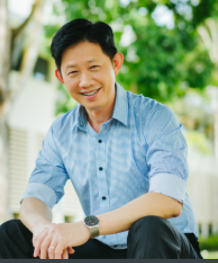
Associate Professor TAN Seng Chee
Nanyang Technological University (NTU), Singapore
Title: Learning Design Considerations for Using Generative AI for Education
Abstract:
The advent of generative AI has emerged as a disruptive technology in education, eliciting strong reactions from educators and researchers alike. While some educators express concerns about its potential negative impacts on student learning—such as inert learning, cognitive laziness, over-dependency on AI, and AI hallucinations—there is also promising research exploring how generative AI can be harnessed to support teaching, develop instructional materials, and serve as a personal tutor for students. This talk examines the design considerations for using generative AI in education. It explores our underlying assumptions and perspectives on learning, the role of technology as scaffolds or cognitive tools, and the issues surrounding student agency and self-regulation. Additionally, it will showcase proof-of-concept generative AI-powered companions designed for both teachers and students.
Biography:
Dr TAN Seng Chee is the Associate Dean, Office of Graduate Studies and Professional Learning, National Institute of Education (NIE), Nanyang Technological University (NTU). His research focuses on 21st century teaching and learning, including knowledge building, collaborative learning and self-directed learning. Given the influence of emerging technologies on education, he has explored various instructional and learning technologies including computer-supported collaborative learning, learning analytics and artificial intelligence. He has developed and taught over 20 courses, ranging from undergraduate to doctoral levels, primarily focusing on instructional technologies and 21st century learning. In addition to his academic roles, Dr. Tan has served on the editorial boards of journals like Instructional Science and IEEE Transactions on Learning Technologies. He has also conducted workshops and delivered talks in numerous countries, including Australia, Canada, China, Dubai, India, Malaysia, Singapore, South Korea, and Vietnam.